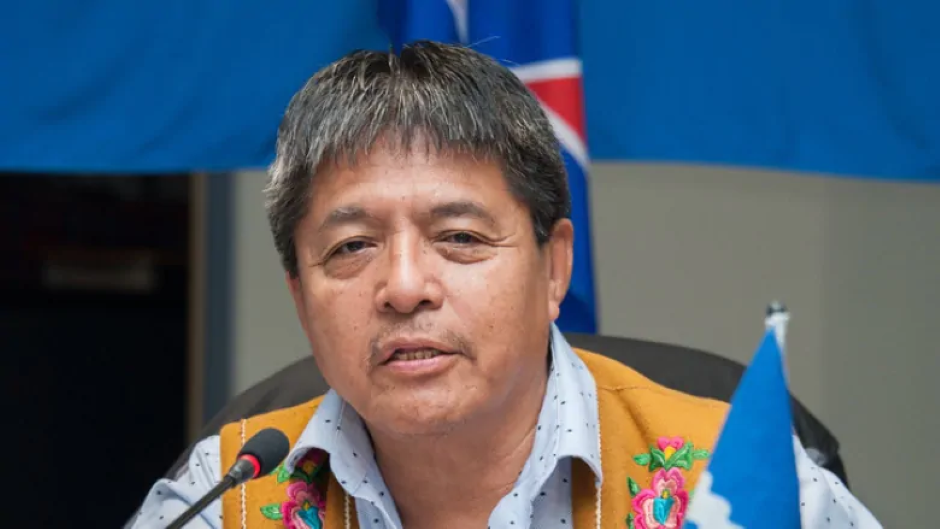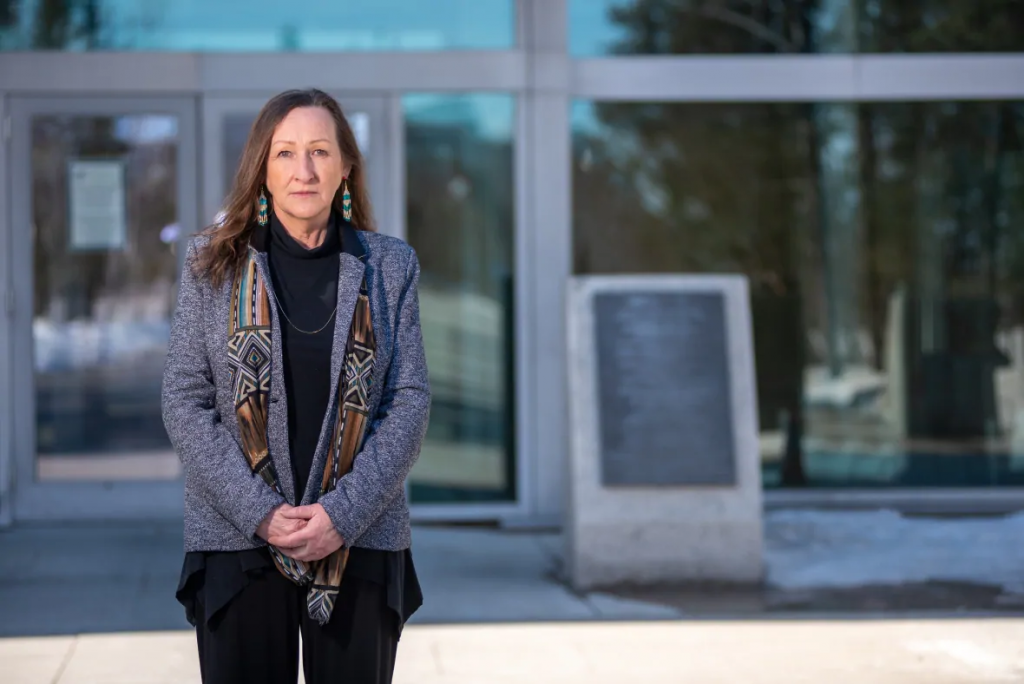Northwestern Canada Grand Chief calls recent agreement with government a ‘milestone’

Tłı̨chǫ Grand Chief George Mackenzie is calling a recent agreement with the territorial government a “milestone.”
Late last week, the N.W.T. government announced it will now negotiate directly with Tłı̨chǫ businesses for infrastructure projects on Tłı̨chǫ territory.
Mackenzie previously called the government’s public tender process for the projects “an insult” after several major infrastructure projects were awarded to non-Indigenous firms.
The agreement includes a new commitment from RTL Construction, the company controversially awarded the contract for work on the access road between Behchokǫ̀, N.W.T., and Highway 3. The company has now agreed 25 per cent of the labour will be performed by the Tłı̨chǫ Investment Corporation, which will employ Tłı̨chǫ citizens on the project.
“We gave up the small fish but we went after the bigger fish,” Mackenzie said.
He said the new agreement is a step in the right direction, and even though they didn’t get the entire access road construction contract, he is hopeful for what contracts it will bring in the future.
“That means that there will be a lot of jobs going our way for our young people, and we will make some money out of it through the contracts,” said Mackenzie.
Procurement process is a priority, says premier
Premier Caroline Cochrane said that despite differing interpretations of the Tłı̨chǫ Agreement, both governments agree that an important part of the agreement is economic self-sufficiency.
She said looking at the procurement process was a priority of the new assembly, but that was delayed due to the ongoing pandemic.
“Now … we kind of know what we’re doing with COVID-19. It gives us the luxury to go back to our procurement and realize the importance [of] procurement in the Northwest Territories,” said Cochrane.

She said the pandemic has also been a reminder of how important it is for the territory to hire from the North.
“The economy is not good throughout Canada and throughout the world right now, so this really emphasized that we need to make sure that we’re doing our best to hire North.”
She added that the territory will also be working with the federal government to make the procurement process easier for northern businesses.
Engaging with Indigenous governments
Cochrane said the territorial government plans to engage with Indigenous governments on procurement policies.
Late last month, the Yellowknives Dene First Nation withdrew its support for a massive project that would see roads, hydro and communication lines built through mineral-rich areas northeast of Yellowknife.
In a statement, the First Nation said the territory issued a $20-million contract to two multinational consulting firms from southern Canada.
“We’ve been having meetings with them [the Yellowknives Dene] as well, I think we’re also coming to an agreement with them,” said Cochrane. “I think right now we’re in a good place.”
Instead of being reactive moving forward, she has asked for the territorial government to sit down with all of the Indigenous governments to discuss procurement processes.
“We’ll all sit together and talk about how procurement should be. What is fair for Indigenous governments and what is fair for the public sector. We cannot forget the public sector as we move forward in this as well.”
With files from Garrett Hinchey and Lawrence Nayally
Related stories from around the North:
Canada: Canada outlines which Indigenous businesses benefit from $5M funding in the North, CBC News
Finland: Miners hunting for metals to battery cars threaten Finland’s Sámi reindeer herders’ homeland, The Independent Barents Observer
Norway: The Arctic railway – Building a future or destroying a culture?, Eye on the Arctic
Russia: Russian Indigenous groups call on Elon Musk to boycott company behind Arctic environmental disasters, The Independent Barents Observer
Sweden: Sami in Sweden start work on structure of Truth and Reconciliation Commission, Eye on the Arctic



